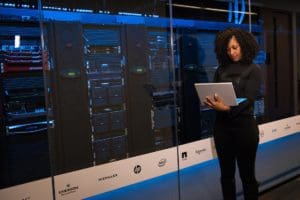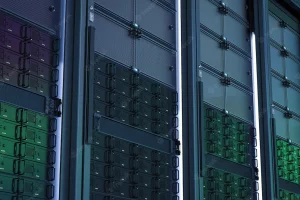Renewable energy sources are at the forefront of transforming our approach to sustainable and efficient power consumption. At EziBlank, we understand the critical role that intelligent airflow management plays in optimising energy usage, especially as businesses pivot towards greener solutions. Our innovative blanking panels not only enhance your system's performance but also contribute to lowering your carbon footprint. Make the smart investment in EziBlank today—where maximising your infrastructure’s efficiency meets a commitment to renewable energy.
Green Data Center Case Study
A green data centre case study highlights how implementing sustainable practices can lead to significant environmental and financial benefits. In one example, a data centre achieved substantial energy savings by integrating renewable energy sources such as solar and wind power into its operations. Additionally, the facility utilised advanced cooling technologies, including free cooling and liquid cooling systems, which drastically reduced the reliance on traditional, energy-intensive air conditioning. The implementation of hot and cold aisle containment systems further optimised airflow, minimising energy waste. Through these initiatives, the data centre not only reduced its carbon footprint but also realised considerable cost savings, demonstrating that sustainability and efficiency can go hand in hand. This case study serves as a model for other facilities aiming to transition towards greener, more energy-efficient operations.
Read More
The Advantages of a Green Data Center
A green data centre offers numerous advantages, both for the environment and for the businesses that operate them. By prioritising energy efficiency and sustainability, green data centres significantly reduce their carbon footprint, contributing to environmental conservation and aligning with global efforts to combat climate change. These facilities often utilise renewable energy sources, such as solar or wind power, which not only cuts down on greenhouse gas emissions but also reduces reliance on traditional, non-renewable energy sources. Additionally, green data centres implement advanced cooling technologies and airflow management strategies, such as hot and cold aisle containment, to optimise energy use and lower operational costs. The financial benefits are substantial, as reduced energy consumption translates directly into cost savings over time. Furthermore, operating a green data centre can enhance a company’s reputation, demonstrating a commitment to sustainability that resonates with environmentally conscious customers and partners. Overall, the shift towards greener data centres is not only a responsible choice for the planet but also a strategic business decision.
Read More
Defining and Being a Green Data Center
A green data centre is one that prioritises sustainability and energy efficiency in its design, operations, and maintenance, aiming to minimise its environmental impact while maintaining high performance. This is achieved through several key strategies, including the use of renewable energy sources such as solar or wind power to reduce reliance on fossil fuels. Energy-efficient hardware, advanced cooling techniques like free cooling or liquid cooling, and effective airflow management using hot and cold aisle containment are also integral to green data centres. These facilities often implement rigorous energy monitoring and management practices to optimise power usage effectiveness (PUE) and reduce waste. Being a green data centre means not only adopting these technologies and practices but also committing to ongoing improvements and innovations that further reduce environmental impact. This approach benefits both the planet and the bottom line, as reduced energy consumption translates to lower operational costs, and the commitment to sustainability can enhance a company’s reputation and appeal to environmentally conscious customers and partners.
Read More